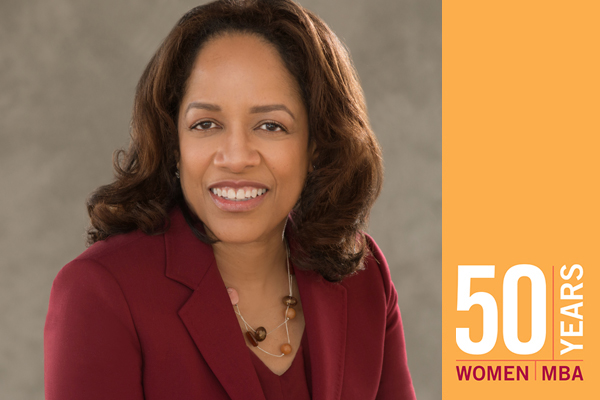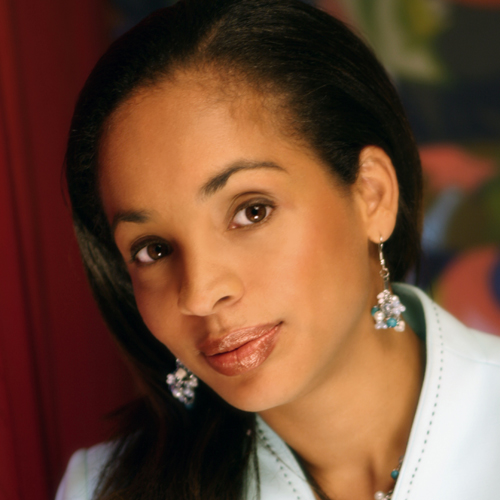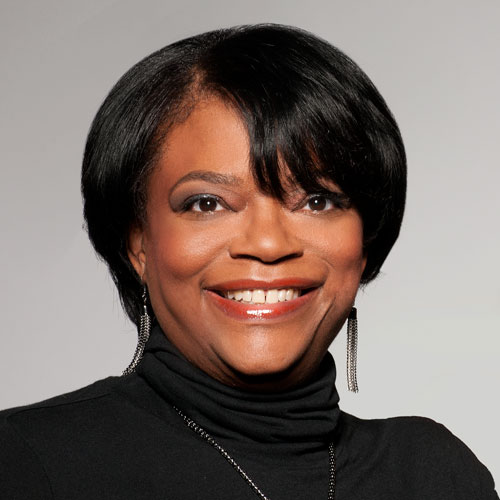
Wanda Felton
Biography
Wanda Felton was nominated to serve as vice chair of the Export-Import Bank of the United States ("Ex-Im Bank") by President Obama in April 2011 and unanimously confirmed by the United States Senate. She was nominated in June 2013 to a second term. During her tenure at Ex-Im Bank, Ms. Felton voted on approximately $25 billion of financings, spanning global markets and industries. In addition, she traveled extensively to promote the President's National Export Initiative and commercial engagement between the United States and sub-Saharan Africa. She led or participated in trade missions to seven African countries to focus attention on trade and investment opportunities. Ms. Felton has been a featured speaker at events sponsored by organizations such as the African Energy Forum, Institutional Investor, Alliance Bernstein and the Corporate Council on Africa.
What impact did HBS have on your life and the life of others?
HBS changed my life in ways that are both fundamental and far-reaching. First, there is the obvious — the "halo effect" which I continue to experience. It opens doors. Second, the alumni network is unrivaled. That is also obvious on its face, but the network's true strength is in its diversity. When I learned that I was being considered for a presidential appointment, I naively thought: "I must have written a very compelling letter!" It turned out that my HBS/HLS network gave me the visibility I needed to break through.
HBS expanded my options and horizons, giving me opportunities to experience life in ways I would not have imagined. I have traveled the world, met heads of state, and done work that is deeply satisfying. I have been very fortunate to have a career that offers real fulfillment. My career has largely focused on private equity. I have raised capital for some very large private equity firms; however, the real satisfaction has come when I have been able to help communities that have difficulty attracting capital, including African American fund managers and "frontier" markets. Owning meaningful businesses gives people a stake in society, promotes economic mobility and improves lives. Moreover, these investments can generate very competitive returns. One client provided the initial capital that launched BET, Radio One, and XM Satellite Radio, and successfully repositioned the formerly bankrupt Iridium Satellite Communications. Other clients have shown that Africa can be a source of attractive returns.
How did being black and a woman shape your experience at HBS and thereafter?
HBS is in many ways a fraternity. There are hurdles to admission, but academics are only the first bar. As a black woman, I was something of an outlier. There were six of us in my class. At the B School, wealth was as much a divide as race and gender but these distinctions were muted by the more diverse mix of students at Harvard's other graduate and professional schools. That made a huge difference in my experience.
Having graduated in 1984, I was part of a cohort of women professionals who did not have many role models and focused on career to the detriment of having a family. I was blessed, however, to find a family in the wreckage that was Hurricane Katrina. Like so many people, I was riveted by the coverage. In the immediate aftermath of Katrina, NBC ran several stories about families that had been affected by the disaster. One family — an elderly woman and her grandson — really captured my attention. I tracked them down, and to my surprise, encountered an extended family of 18 households, including 47 children and 27 adults who had been displaced by Katrina. Of these, 18 people were bunking with relatives in a three-bedroom house that was already home to eight people. FEMA was not yet operational so I rented a home for as many of the family members as possible. Later, my HBS network helped me find educational resources outside New Orleans for two of the children. One attended college on a full scholarship and is on track to graduate this year.
What advice would you give to young black women who will attend HBS in the future?
Looking back, I created an unconventional family and I am grateful for that opportunity. However, I caution women to be mindful of the unconscious trade-offs they may be making. The debate about whether women can have it all is recurrent because the trade-offs are real. You may not be making conscious decisions but you are making choices.
Women and men are different. There's nothing wrong with that. In fact, there is plenty of room to celebrate our differences. There is also room to learn from each other. I think that is the essence of Sheryl Sandberg's message in Lean In. I am often struck by how women seem to feel the need to earn their way up the ladder rung-by-rung while men feel at liberty to skip rungs. It is empowering to lean in and leap over. You will overcome the initial challenges and grow from the experience.
Engage fully in every aspect of HBS life. It is a rich experience and a rarified opportunity. You will form lifelong friendships that will enhance your life professionally and personally. Pay close attention in those organizational behavior classes. As you rise, having an astute understanding of organizational behavior and politics really matters.
Finally, your career may not be a source of huge personal gratification. Have appropriate, clearly defined expectations for your work life. Seek sustenance elsewhere. The goal is a life well lived!

